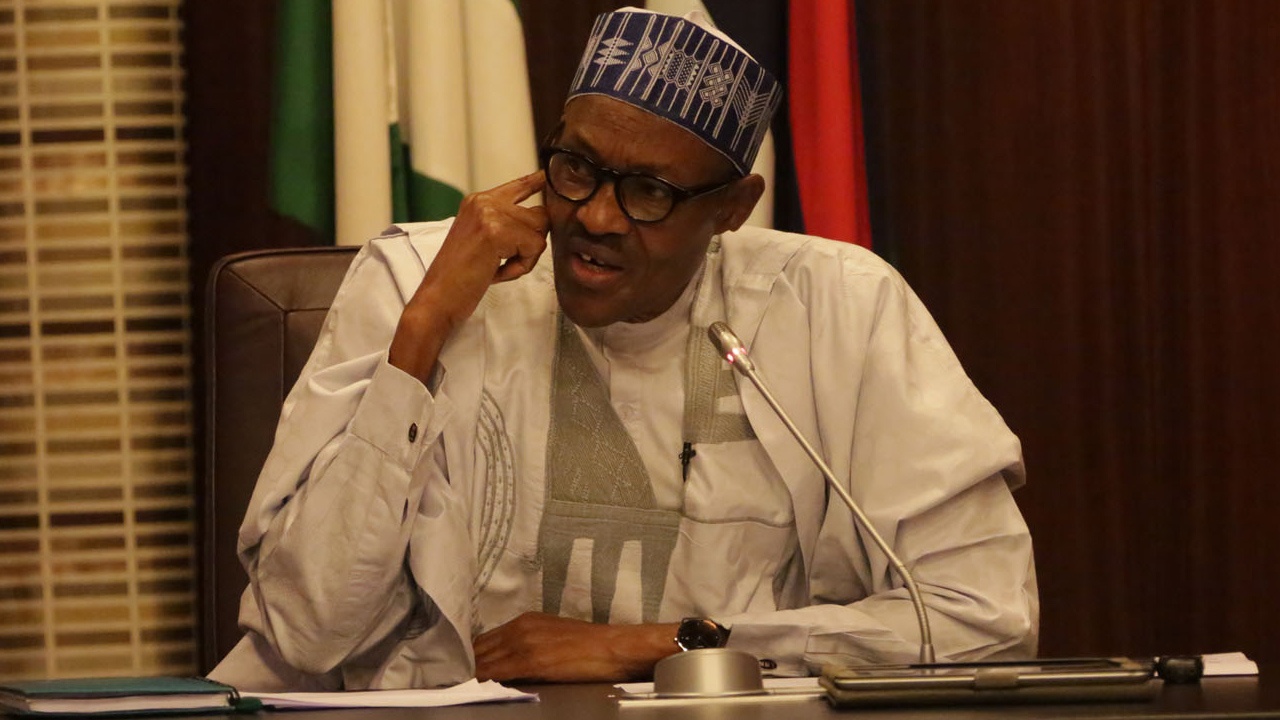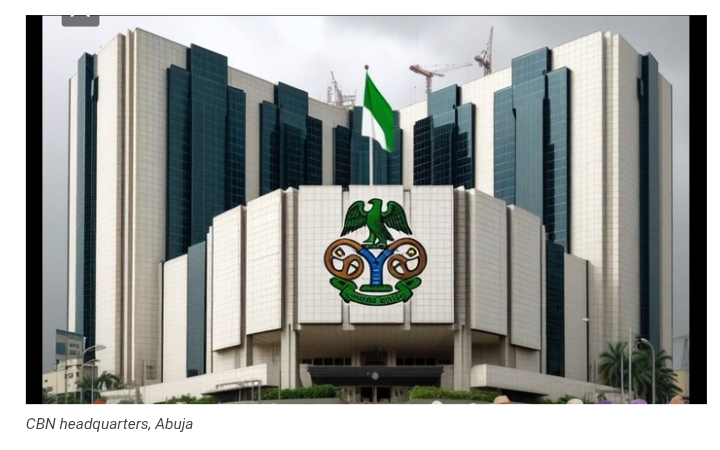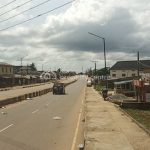Feature/OPED
Buhari’s Tweet about CNN/BBC Report on The #EndSARS Campaign

By Jerome-Mario Utomi
The information in the public domain reveals that President Muhammadu Buhari on Wednesday, December 9, 2020, via a tweet stated that he was ‘disgusted’ by the coverage of the protest against police brutality done by the foreign media.
Buhari criticised the CNN and BBC for allegedly not rendering a balanced reportage of the protest tagged #EndSARS.
“I was disgusted by the coverage, which did not give attention to the policemen that were killed, the stations that were burnt, and prisons that were opened,” he had said.
To be sure, my first reaction to that tweet by Mr President was to seek the latest meaning of the word disgusted. And this is what I got from Wikipedia, the world’s information search engine. It says; disgusted is an emotional response of rejection or revulsion to something potentially contagious or something considered offensive, distasteful, or unpleasant.
In The Expression of the Emotions in Man and Animals, Charles Darwin wrote that disgust is a sensation that refers to something revolting.
Without dwelling further on the correctness or otherwise of CNN/BBC reports, as it is not the kernel of this piece, it is, however, important to underline that many commentators/analysts have but peripherally argued that Mr President enjoys prerogatives to feel disgusted over such report that dealt very strong blows on the reputation/image of a nation under his watch.
Indeed, while I appreciate their views that every great leader should be concerned about all form of dent targeted at the image of his/her society, group, state, region or nation, no matter how little, I chuckled at the claim by some that manipulators in the media especially influential news organizations like CNN/BBC, can intentionally ignore or downplay transgressions and prevarications on behalf of the people they agree with while making an enormous fanfare about any imperfections found in their perceived enemies.
Notedly also, even as their argument was not sufficient to push through their corrupt understanding of disgusted, coupled with the fact that Mr President claim that the CNN/BBC did not give attention to the policemen that were killed, stations that were burnt and prisons that were opened have since been found to be inaccurate, the whole episode have for two reasons left me lost in the maze of high voltage confusion.
First, no matter how long we live in denial as a nation, the Tuesday, October 20, 2020, Lekki Toll Gate tale where scores of protesters were reportedly shot at by shooters believed to be officers of the Nigerian military, will continue to resonate on the nation’s political wavelength until proponents of disorder develop courage and stamina to ask for forgiveness from Nigerian youths that they have wronged. Any other solution is at best temporal.
Secondly, this piece believed and still believes that, like every forest which has layers-ranging from the ground level and scaling up the heights, there exist articulated concerns in ways that render the content of Mr President’s tweet as misguided.
Separate from the belief by Nigerians with critical minds that the country is right now in its most fragile state since the end of the civil war, even if the President must for any reason feel concerned about any issue, he should have de-focussed on the #EndSARS debacle as the consequence of its poor management/handling has more than anything else presented his administration as a bunch that is unwilling to draw a lesson from its past mistakes/wrong leadership judgements. He should have rather concentrated more on fundamental issues such as the provision of security, education, infrastructure and pursuit of the economic welfare of citizens which are his constitutional responsibilities.
In fact, there are numerous examples of great leaders across the globe that in a period of crisis like ours, generated breakthrough ideas via a concentration on fundamental issues.
One of such leaders that naturally comes flooding of which President Muhammadu Buhari could draw a lesion form is Sheikh Mohammed Bin Rashid Al Maktoum, Vice President and Prime Minister of the United Arab Emirate and Ruler of Dubai.
He (Al Maktoum) on one occasion stated “there was a time we used to worry about the aftermath of the depletion of our oil resources, but these worries are dissipating. We have successfully diversified our economy by focusing on trade, tourism, services and creating new opportunities. We have succeeded because we mastered the art of exploiting the best resources in the world for acquiring inexhaustible riches.”
The ingrained lessons inherent in this comment is that while the Lekki Toll Gate narrative remains a sin that the federal government must continue to share from its guilt no matter the volume of excuses generated, it would have been considered more rewarding if Mr President in that tweet told Nigerians how his administration is tackling the offensive, distasteful, unpleasant and unacceptable, and nagging security and economic situations in the country.
He urgently needs to be familiar with the fact that the nation will continue to find itself stuck in difficulty accelerating the economic life cycle until his administration creatively contemplates diversifying, and focusing not on CNN/ BBC reports on Lekki Toll Gate shooting or its likes, but on trade, tourism, services, creating new opportunities and reduction in the cost of governance.
The need for diversifying the nation’s economy becomes imperative when one commits to mind that such a step will provide options for the nation to reduce financial risks and increase national economic stability: As a decline in particular revenue source might be offset by the increase in other revenue sources.
Same goes to the education sector. Mr President must redirect strength dissipated on gloating over CNN/BBC reports, to finding answers to the nation’s education sector that is on the progressive decline. And take pragmatic steps to fund the sector in ways that can bring back the kind of learning and nation envisioned by our founders. He must sincerely take politics out of education and feel concerned and remorseful that for over seven months Nigerian universities students of which youths composed a greater chunk of them have been at home, no thanks to the strike action embarked upon by the Academic Staff Union of Universities (ASUU) and the inability of the Federal Government to meet with their demands.
This administration must take advantage of all the educational tools available to return us to a place where our public education system will be the envy of the world.
To use the words of Ben Carson, part of that education will include preparing people for jobs of the future, which will decrease unemployment and increase fulfilment while brightening future generations’ prospects.
Lastly, we should shine the bright light of truth on the forces of manipulation that run rampant throughout our society today. Improvements in education, combined with wisdom and knowledge, would then turn our country around’.
In conclusion, while this piece urges Mr President’s handlers to imbibe the culture of verifying information before circulating /dissemination as such is capped with the capacity to reduce citizens’ trust in the federal government, I hold the opinion that the government must do something to help the youths come out of this challenge. It Is in the interest of the government to develop the political will to help Nigerian youths. It is also in the interest of the government to address the issue of the millions of out of school children in the country. This should be done not merely for political consideration but from the views of national development, sustenance of our democracy and most importantly, averting future #EndSARS protests.
Jerome-Mario Utomi is the Programme Coordinator (Media and Public Policy), Social and Economic Justice Advocacy (SEJA), Lagos. He could be reached via; je*********@***oo.com or 08032725374.
Feature/OPED
Brent’s Jump Collides with CBN Easing, Exposes Policy-lag Arbitrage

Nigeria is entering a timing-sensitive macro set-up as the oil complex reprices disruption risk and the US dollar firms. Brent moved violently this week, settling at $77.74 on 02 March, up 6.68% on the day, after trading as high as $82.37 before settling around $78.07 on 3 March. For Nigeria, the immediate hook is the overlap with domestic policy: the Central Bank of Nigeria (CBN) has just cut its Monetary Policy Rate (MPR) by 50 basis points to 26.50%, whilst headline inflation is still 15.10% year on year in January.
“Investors often talk about Nigeria as an oil story, but the market response is frequently a timing story,” said David Barrett, Chief Executive Officer, EBC Financial Group (UK) Ltd. “When the pass-through clock runs ahead of the policy clock, inflation risk, and United States Dollar (USD) demand can show up before any oil benefit is felt in day-to-day liquidity.”
Policy and Pricing Regime Shift: One Shock, Different Clocks
EBC Financial Group (“EBC”) frames Nigeria’s current set-up as “policy-lag arbitrage”: the same external energy shock can hit domestic costs, FX liquidity, and monetary transmission on different timelines. A risk premium that begins in crude can quickly show up in delivered costs through freight and insurance, and EBC notes that downstream pressure has been visible in refined markets, with jet fuel and diesel cash premiums hitting multi-year highs.
Market Impact: Oil Support is Conditional, Pass-through is Not
EBC points out that higher crude is not automatically supportive of the naira in the short run because “oil buffer” depends on how quickly external receipts translate into market-clearing USD liquidity. Recent price action illustrates the sensitivity: the naira was quoted at 1,344 per dollar on the official market on 19 February, compared with 1,357 a week earlier, whilst street trading was cited around 1,385.
At the same time, Nigeria’s inflation channel can move quickly even during disinflation: headline inflation eased to 15.10% in January from 15.15% in December, and food inflation slowed to 8.89% from 10.84%, but energy-led transport and logistics costs can reintroduce pressure if the risk premium persists. EBC also points to a broader Nigeria-specific reality: the economy grew 4.07% year on year in 4Q25, with the oil sector expanding 6.79% and non-oil 3.99%, whilst average daily oil production slipped to 1.58 million bpd from 1.64 million bpd in 3Q25. That mix supports external-balance potential, but it also underscores why the domestic liquidity benefit can arrive with a lag.
Nigeria’s Buffer Looks Stronger, but It Does Not Eliminate Sequencing Risk
EBC sees that near-term external resilience is improving. The CBN Governor said gross external reserves rose to USD 50.45 billion as of 16 February 2026, equivalent to 9.68 months of import cover for goods and services. Even so, EBC views the market’s focus as pragmatic: in a risk-off tape, investors tend to price the order of transmission, not the eventual balance-of-payments benefit.
In the near term, EBC expects attention to rotate to scheduled energy and policy signposts that can confirm whether the current repricing is a short, violent adjustment or a more durable regime shift, including the U.S. Energy Information Administration (EIA) Short-Term Energy Outlook (10 March 2026), OPEC’s Monthly Oil Market Report (11 March 2026), and the U.S. Federal Reserve meeting (17 to 18 March 2026). On the domestic calendar, the CBN’s published schedule points to the next Monetary Policy Committee meeting on 19 to 20 May 2026.
Risk Frame: The Market Prices the Lag, Not the Headline
EBC cautions that outcomes are asymmetric. A rapid de-escalation could compress the crude risk premium quickly, but once freight, insurance, and hedging behaviour adjust, second-round effects can linger through inflation uncertainty and a more persistent USD bid.
“Oil can act as a shock absorber for Nigeria, but only when the liquidity channel is working,” Barrett added. “If USD conditions tighten first and domestic pass-through accelerates, the market prices the lag, not the headline oil price.”
Brent remains an anchor instrument for tracking this timing risk because it links energy-led inflation expectations, USD liquidity, and emerging-market risk appetite in one market. EBC Commodities offering provides access to Brent Crude Spot (XBRUSD) via its trading platform for following energy-driven macro volatility through a single instrument.
Feature/OPED
Gen Alpha: Africa’s Digital Architects, Not Your Target Audience

By Emma Kendrick Cox
This year, the eldest Gen Alpha turns 16.
That means they aren’t just the future of our work anymore. They are officially calling for a seat at the table, and they’ve brought their own chairs. And if you’re still calling this generation born between 2010 and 2025 the iPad generation, then I hate to break it to you, but you’re already obsolete. To the uninitiated, they look like a screen-addicted mystery. To those of us paying attention, they are the most sophisticated, commercially potent, and culturally fluent architects Africa has ever seen.
Why? Because Alphas were not born alongside the internet. They were born inside it. And by 2030, Africa will be home to one in every three Gen Alphas on the planet.
QWERTY the Dinosaur
We are witnessing the rise of a generation that writes via Siri and speech-to-text before they can even hold a pencil. With 63% of these kids navigating smartphones by age five, they don’t see a QWERTY keyboard as a tool. They see it as a speed bump, the long route, an inefficient use of their bandwidth. They don’t need to learn how to use tech because they were born with the ability to command their entire environment with a voice note or a swipe.
They are platform agnostic by instinct. They don’t see boundaries between devices. They’ll migrate from an Android phone to a Smart TV to an iPhone without breaking their stride. To them, the hardware is invisible…it’s the experience that matters.
They recognise brand identities long before they know the alphabet. I share a home with a peak Gen Alpha, age six and a half (don’t I dare forget that half). When she hears the ding-ding-ding-ding-ding of South Africa’s largest bank, Capitec’s POS machine, she calls it out instantly: “Mum! Someone just paid with Capitec!” It suddenly gives a whole new meaning to the theory of brand recall, in a case like this, extending it into a mental map of the financial world drawn long before Grade 2.
And it ultimately lands on this: This generation doesn’t want to just view your brand from behind a glass screen. They want to touch it, hear it, inhabit it, and remix it. If they can’t live inside your world, you’re literally just static.
The Uno Reverse card
Unlike any generation we’ve seen to date, households from Lagos to Joburg and beyond now see Alphas hold the ultimate Uno Reverse card on purchasing power. With 80% of parents admitting their kids dictate what the family buys, these Alphas are the unofficial CTOs and Procurement Officers of the home:
-
The hardware veto: Parents pay the bill, but Alphas pick the ISP based on Roblox latency and YouTube 4K buffers.
-
The Urban/Rural bridge: In the cities, they’re barking orders at Alexa. In rural areas, they are the ones translating tech for their families and narrowing the digital divide from the inside out.
-
The death of passive: I’ll fall on my sword when I say that with this generation, the word consumer is dead. It implies they just sit there and take what you give them, when, on the contrary, it is the total opposite. Alphas are Architectural. They are not going to buy your product unless they can co-author the experience from end to end.
As this generation creeps closer and closer to our bullseye, the team here at Irvine Partners has stopped looking at Gen Alpha as a demographic and started seeing them as the new infrastructure of the African market. They are mega-precise, fast, and surgically informed.
Believe me when I say they’ve already moved into your industry and started knocking down the walls. The only question is: are you building something they actually want to live in, or are you just a FaceTime call they are about to decline?
Pay attention. Big moves are coming. The architects are here.
Emma Kendrick Cox is an Executive Creative Director at Irvine Partners
Feature/OPED
Why Digital Trust Matters: Secure, Responsible AI for African SMEs?

By Kehinde Ogundare
For years, security for SMEs across sub-Saharan Africa meant metal grilles and alarm systems. Today, the most significant risks are invisible and growing faster than most businesses realise.
Artificial Intelligence has quietly embedded itself into everyday operations. The chatbot responding to customers at midnight, the system forecasting inventory requirements, and the software identifying unusual transactions are no longer experimental technologies. They are becoming standard features of modern business tools.
Last month’s observance of Safer Internet Day on February 10, themed ‘Smart tech, safe choices’, marked a pivotal moment. As AI adoption accelerates, the conversation must shift from whether businesses should use AI to how they deploy it responsibly. For SMEs across Africa, digital trust is no longer a technical consideration. It is a strategic business imperative.
The evolving threat landscape
Cybersecurity threats facing sub-Saharan African SMEs have moved well beyond basic phishing emails. Globally, cybercrime costs are projected to reach $10.5 trillion this year, fuelled by generative AI and increasingly sophisticated social engineering techniques. Ransomware attacks now paralyse entire operations, while other threats quietly extract sensitive customer data over extended periods.
The regional impact is equally significant. More than 70% of South African SMEs report experiencing at least one attempted cyberattack, and Nigeria faces an average of 3,759 cyberattacks per week on its businesses. Kenya recorded 2.54 billion cyber threat incidents in the first quarter of 2025 alone, whilst Africa loses approximately 10% of its GDP to cyberattacks annually.
The hidden risk of fragmentation
A common but often overlooked vulnerability lies in digital fragmentation.
In the early stages of growth, SMEs understandably prioritise affordability and agility. Over time, this can result in a patchwork of disconnected applications, each with separate logins, security standards, and privacy policies. What begins as flexibility can involve operational complexity.
According to IBM Security’s Cost of a Data Breach Report, companies with highly fragmented security environments experienced average breach costs of $4.88 million in 2024.
Fragmented systems create blind spots; each additional data transfer between applications increases exposure. Inconsistent security protocols make governance harder to enforce. Limited visibility reduces the ability to detect anomalies early. In practical terms, complexity increases risk.
Privacy-first AI as a competitive differentiator
As AI capabilities become embedded in business software, SMEs face a choice about how they approach these powerful tools. The risks are not merely theoretical.
Consumers across Africa are becoming more aware of data rights and are willing to walk away from businesses that cannot demonstrate trustworthiness. According to KPMG’s Trust in AI report, approximately 70% of adults do not trust companies to use AI responsibly, and 81% expect misuse. Meanwhile, studies also show that 71% of consumers would stop doing business with a company that mishandles information.
Trust, once lost, is difficult to rebuild. In the digital age, a single data leak can destroy a reputation that took ten years to build. When customers share their payment details or purchase history, they extend trust. How you handle that trust, particularly when AI processes their data, determines whether they return or take their business elsewhere.
Privacy-first, responsible AI design means building intelligence into business systems with data protection, transparency and ethical use embedded from the outset. It involves collecting only necessary information, storing it securely, being transparent about how AI makes decisions, and ensuring algorithms work without compromising customer privacy. For SMEs, this might mean choosing inventory software where predictive AI runs on your own data without sending it externally, or customer service platforms that analyse patterns without exposing individual records. When AI is built responsibly into unified platforms, it becomes a competitive advantage: you gain operational efficiency whilst demonstrating that customer data is protected, not exploited.
Unified platforms and operational resilience
The solution lies in rethinking digital infrastructure. Rather than accumulating disparate tools, businesses need unified platforms that integrate core functions whilst maintaining consistent security protocols.
A unified approach means choosing cloud-based platforms where functions share common security standards, and data flows seamlessly. For a manufacturing SME, this means inventory management, order processing and financial reporting operate within a single security framework.
When everything operates cohesively, security gaps diminish, and the attack surface shrinks. And the benefits extend beyond risk reduction: employees spend less time on administrative friction, customer data stays consistent, and platforms enable secure collaboration without traditional infrastructure costs.
Safer Internet Day reminds us that the digital world requires active stewardship. For SMEs across the African continent who are navigating complex threats whilst harnessing AI’s potential, digital trust is foundational to sustainable growth. Security, privacy and responsible AI are essential characteristics of any technology infrastructure worth building upon. Businesses that embrace unified, privacy-first platforms will be more resilient against cyber threats and better positioned to earn and maintain trust. In a market where trust is currency, that advantage is everything.
Kehinde Ogundare is the Country Head for Zoho Nigeria
-

 Feature/OPED6 years ago
Feature/OPED6 years agoDavos was Different this year
-
Travel/Tourism10 years ago
Lagos Seals Western Lodge Hotel In Ikorodu
-

 Showbiz3 years ago
Showbiz3 years agoEstranged Lover Releases Videos of Empress Njamah Bathing
-

 Banking8 years ago
Banking8 years agoSort Codes of GTBank Branches in Nigeria
-

 Economy3 years ago
Economy3 years agoSubsidy Removal: CNG at N130 Per Litre Cheaper Than Petrol—IPMAN
-

 Banking3 years ago
Banking3 years agoSort Codes of UBA Branches in Nigeria
-

 Banking3 years ago
Banking3 years agoFirst Bank Announces Planned Downtime
-

 Sports3 years ago
Sports3 years agoHighest Paid Nigerian Footballer – How Much Do Nigerian Footballers Earn












